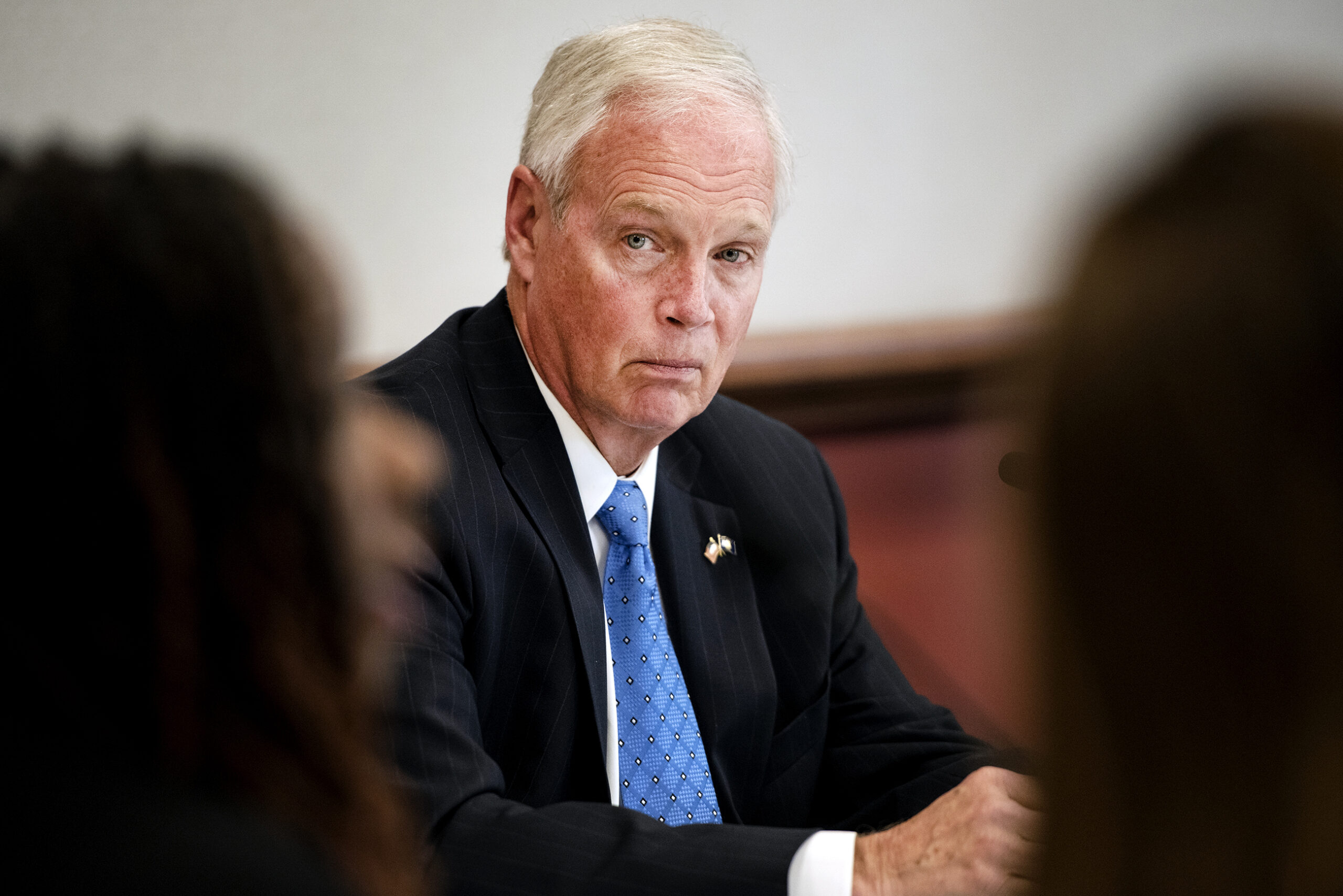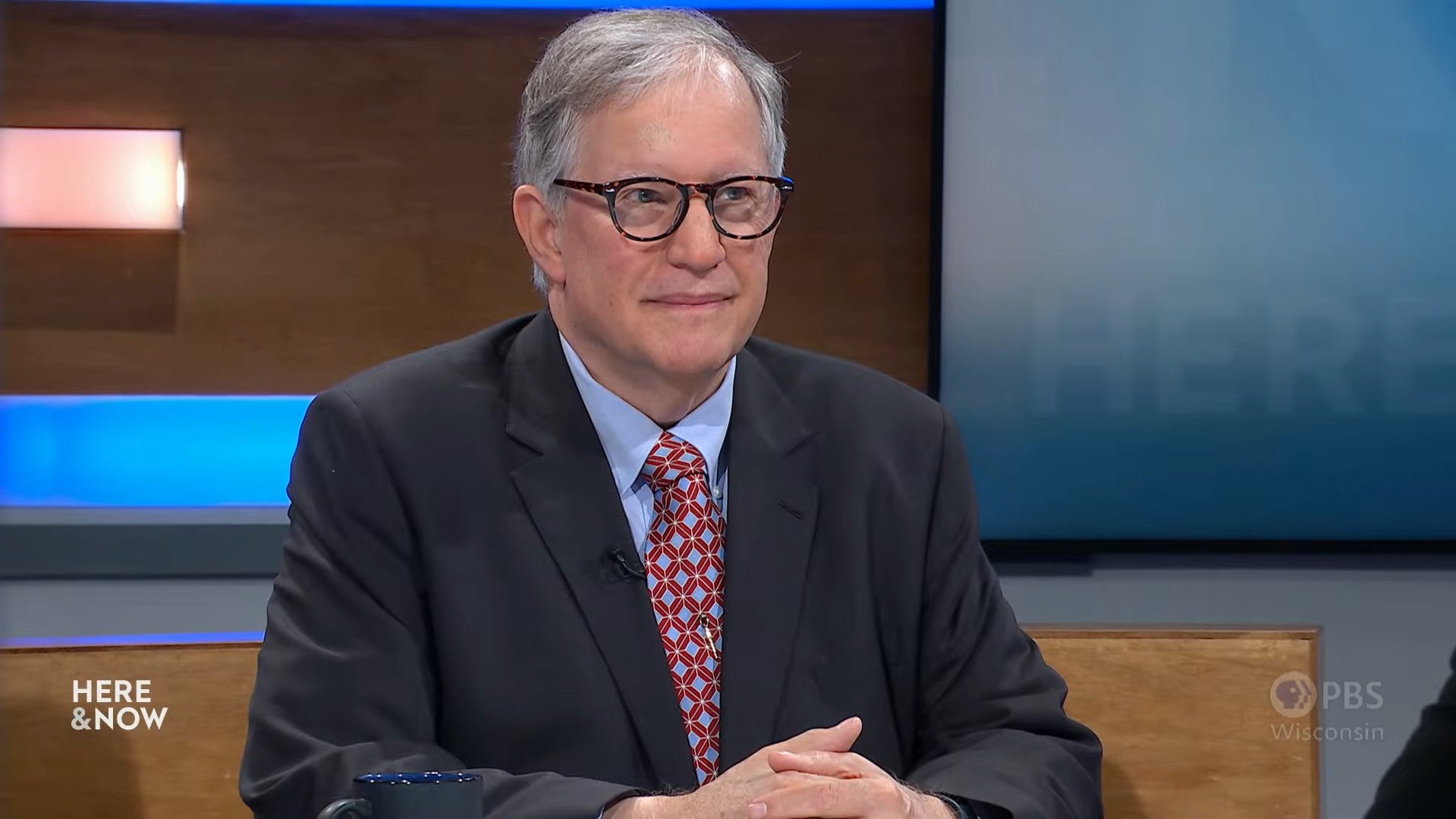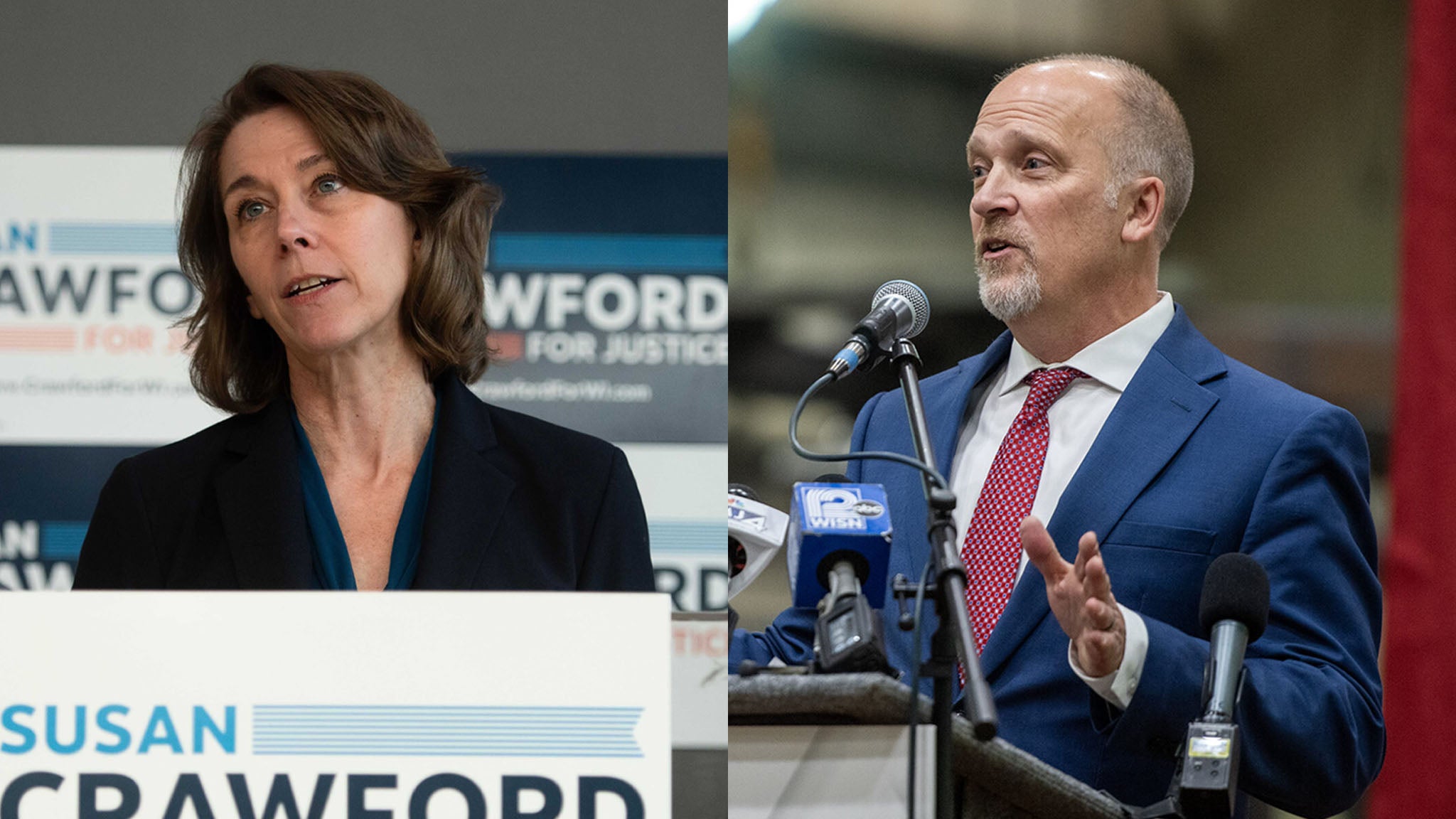The Democratic primary for U.S. Senate has tightened, according to a new poll by Marquette University Law School.
Marquette’s April survey found Lt. Gov. Mandela Barnes was still the top choice among Democratic voters, with 19 percent saying they’d support him. But that was down from 23 percent who said they’d choose Barnes in Marquette’s February poll.
Meanwhile, Milwaukee Bucks executive Alex Lasry’s numbers improved as 16 percent said they’d support him in the Democratic primary, up from 13 percent in February.
News with a little more humanity
WPR’s “Wisconsin Today” newsletter keeps you connected to the state you love without feeling overwhelmed. No paywall. No agenda. No corporate filter.
State Treasurer Sarah Godlewski was the third choice among Democratic voters, with 7 percent saying they’d vote for her, up from 3 percent in February. Rounding out the top candidates, Outagamie County Executive Tom Nelson was the top choice of 5 percent of voters, which is unchanged from February.
Undecided voters remained the largest group, with 48 percent saying they don’t know who they’ll vote for.
“So a tightening of the race, but no evidence that people are making up their minds more,” Marquette University pollster Charles Franklin said.
There was less movement among Republican voters in the GOP primary for governor, where former Lt. Gov. Rebecca Kleefisch maintained a more comfortable lead over the rest of the Republican field.
Marquette found 32 percent of Republican voters favored Kleefisch, up from 30 percent in February. Ten percent chose former U.S. Senate candidate Kevin Nicholson, up from 8 percent in February, while state Rep. Tim Ramthun was the top pick of 4 percent of Republicans, down slightly from 5 percent last month.
The survey was conducted before construction executive Tim Michels launched his campaign for governor, so he was not included.
The number of undecided voters remained similarly large among Republicans, with 46 percent saying they didn’t know who they would support.
Evers approval remains steady, Johnson favorability low, as Wisconsin voters grow more pessimistic
Marquette also found a growing number of pessimistic voters in Wisconsin, although the state’s top incumbent officeholders appear to be weathering that storm differently.
Among all voters from both parties, 49 percent approved of the job Democratic Gov. Tony Evers is doing as governor, down just slightly from 50 percent in February.
When looking at another metric — favorability — 47 percent of voters viewed Evers favorably, compared to 42 percent who viewed him unfavorably, for a net positive of 5 percent.
U.S. Sen. Ron Johnson, by comparison, was viewed favorably by just 36 percent of Wisconsin voters, compared to 46 percent who viewed him unfavorable, for a net negative of 10 percent. While his favorability was up slightly from the 33 percent measured in February, Johnson’s unfavorable rating was the highest it’s ever been.
When asked more generally about the direction of the state, just 36 percent of all voters said Wisconsin was headed in the right direction, compared to 56 percent who said the state is on the wrong track.
Franklin said those numbers had steadily worsened in the past three Marquette polls going back to October.
“It’s striking that people can be this pessimistic about the state and its direction and yet still have a net positive approval rating of Tony Evers,” Franklin said.
Among national leaders, President Joe Biden’s job approval remained “underwater” at 43 percent, compared to 53 percent who disapproved of his job in office. Those numbers were nearly unchanged from February.
Former Republican President Donald Trump’s favorability was just 36 percent, compared to 58 percent who view him unfavorably.
Marquette interviewed 805 Wisconsin registered voters from April 19-24. The margin of error for the full sample was plus or minus 4.1 percent.
When looking only at primary voters, Marquette interviewed 363 Democrats for a margin of error of plus or minus 6.6 percent and 375 Republicans for a margin of error of plus or minus 5.6 percent.
Correction: This story has been updated to reflect Mandela Barnes is polling at 19 percent.
Wisconsin Public Radio, © Copyright 2025, Board of Regents of the University of Wisconsin System and Wisconsin Educational Communications Board.







